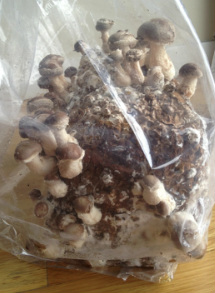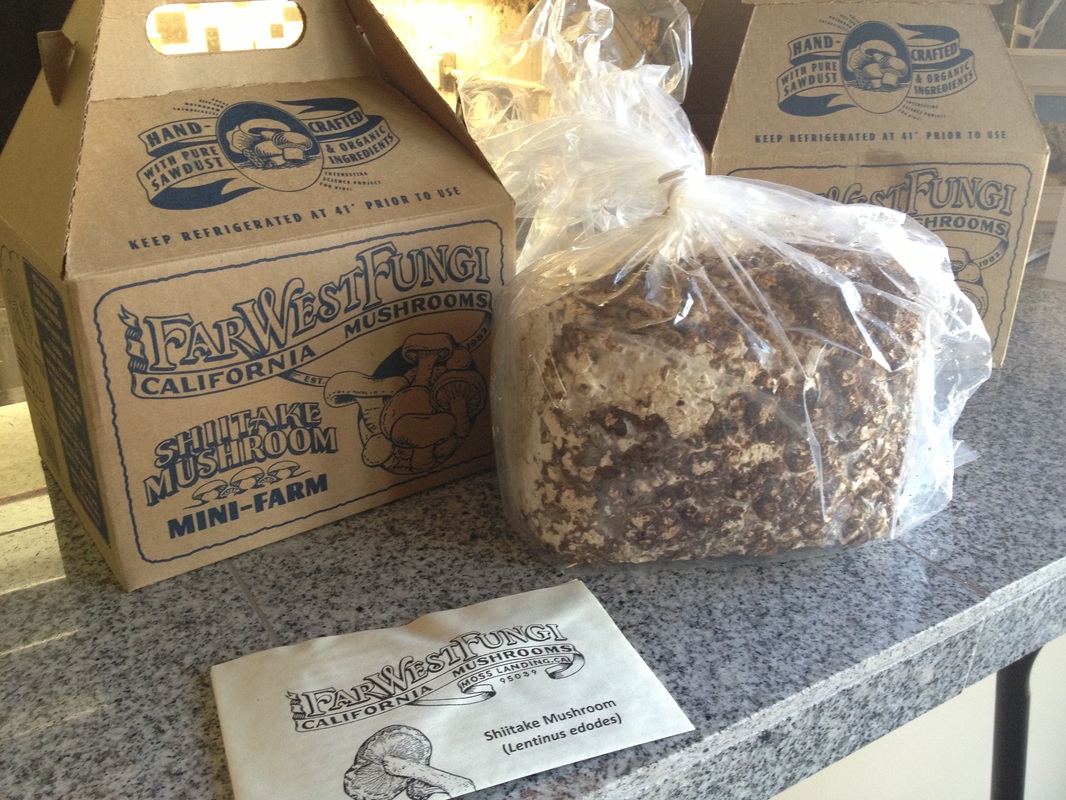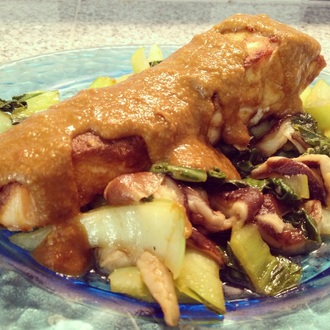|
My wonderful Aunt Di gave me a great Christmas present this year: a Shiitake Mushroom Mini Farm!  The mushrooms started to grow within a few days and have continued to grow like crazy; the picture to the left shows them at about a week old, so they'd grown twice as large by the time I cooked with them last night. As I don't cook with mushrooms too often, I had to google recipes. I've also been trying to incorporate more seafood into my diet and thought I should find a recipe to combine the two. I was lucky to find Salmon 'Bulgogi' with Bok Choy and Shiitakes. Bulgogi is a popular Korean dish typically made with beef marinated in soy sauce, sesame oil, and other seasonings. To make this a healthier dish I've substituted salmon for beef and replaced the soy sauce with coconut aminos. The following recipe has been adapted from the June 2008 Bon Appetit issue. Salmon 'Bulgogi' RecipeOrganic Ingredients:
Directions:
Health Benefits: Bok Choy, a staple in Asian cooking, is actually a type of cabbage and therefor a cruciferous veggie. Cabbage is well known for it's outstanding anti-cancer benefits. It presents a milder flavor with a higher concentration of vitamin A and vitamin C. One cup of bok choy provides more than 100% of the recommended dietary allowance of A, and close to two-thirds the RDA of C, which comes from its concentration of carotenoids such as beta-carotene and polyphenols. It's known for it's anti-inflammatory nutrients, digestive tract and cardiovascular support. Shiitake's are known in Asia as a symbol of longevity because of their health-promoting properties. They've been used medicinally by the Chinese for more than 6,000 years. Studies show they support our cardiovascular and immune system by preventing too much immune cell binding to the lining of the blood vessels. Shiitake's have also proven to exhibit anti-cancer benefits as they've been shown to help block tumor growth, sometimes triggering apoptosis (cell death) in cancer cells. They are known as a good non-animal source of iron, the B vitamins, manganese, phosphorus, and fiber. Read some more fascinating information here. Wild caught salmon is a great source of protein. Much of the focus about salmon is on it's amazing omega-3 benefits, known to improve mood and cognition, decrease numerous cardiovascular problems, eye-related problems, and cancer risk. Salmon is great for supporting our joint cartilage tissue, insulin effectiveness, and control of inflammation in the digestive tract. It is high in vitamin D, vitamin B12, tryptophan, selenium, and phosphorous.
0 Comments
Leave a Reply. |
Kate ColemanE-RYT & Master Nutrition Therapist specializing in Food Allergies, Adjunctive Autoimmune Care, and Digestive Disorders. Archives
May 2013
DisclaimerNo information, ingredient or product mentioned on this site is meant to diagnose, treat or replace professional medical advice. Do not use this site to diagnose yourself. The information here is meant to give guidance in diet and lifestyle practices including balanced diet planning, instruction in the development of eating habits, physical exercises, and stress management in order to assist in general well-being.
Categories
All
|



 RSS Feed
RSS Feed